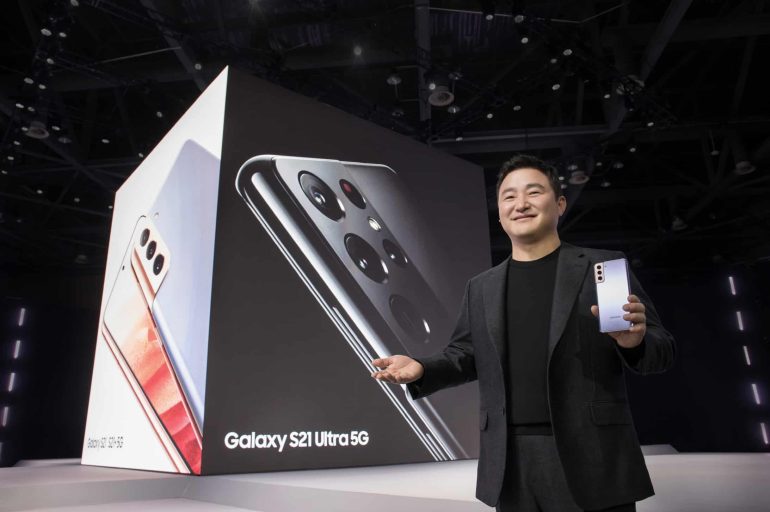- Samsung Electronics showcased its latest products, including foldable smartphones and the Galaxy Ring, emphasizing its AI-driven technology.
- TM Roh, Samsung’s mobile chief, detailed the company’s Galaxy AI suite, featuring tools like real-time language translation and advanced note-taking.
- The Galaxy Unpacked event highlighted Samsung’s strategy to use AI to differentiate its products in a competitive market.
- Samsung is investing in software development, enhancing its AI assistant Bixby, and exploring new revenue models, including potential AI service subscriptions.
- Future innovations include advancements in foldable technology and the development of a mixed reality headset, with a new platform expected by year-end.
Main AI News:
In a high-profile Parisian event, Samsung Electronics’ mobile chief, TM Roh, unveiled the company’s latest advancements, underscoring its commitment to integrating artificial intelligence (AI) across its product ecosystem. Roh’s presentation, held in a sophisticated downtown Paris hotel, featured Samsung’s newest offerings, from its cutting-edge foldable smartphones to the innovative Galaxy Ring. This launch signals Samsung’s strategic push to deepen customer engagement and drive sales through a seamless integration of AI.
During a comprehensive interview with CNBC, Roh detailed Samsung’s vision for Galaxy AI, a suite of AI-driven features designed to enhance user experience across its devices. Galaxy AI includes innovative tools such as the interpreter, which translates spoken language in real-time, and the Notes app, which can record, transcribe, and summarize spoken content. This focus on AI comes as part of Samsung’s broader strategy to maintain its leadership in the competitive smartphone market, particularly as consumers are holding onto their devices longer and becoming more discerning about their spending.
The recent Galaxy Unpacked event in Paris highlighted Samsung’s latest product lineup, including new smartwatches, foldable smartphones, and the introduction of the Galaxy Ring — Samsung’s first foray into smart ring technology. The event reflected Samsung’s broader marketing strategy, emphasizing the integration of AI features in its devices. The company is positioning Galaxy AI as a key differentiator in its products, aiming to captivate customers and maintain a competitive edge against rivals like Apple, which has also recently announced its own AI initiatives.
Roh expressed confidence in AI’s potential to drive new product sales, drawing parallels between the early adoption of smartphones and the internet and the current phase of AI development. He believes that as AI technology matures, it will become increasingly embedded in everyday life, thus driving demand for new and advanced devices. Samsung’s commitment to expanding AI capabilities comes as the company seeks to counteract slower sales and a cautious consumer market.
In contrast to Apple’s model, which generates substantial revenue from its software and services ecosystem, Samsung traditionally relies on hardware sales. However, the company is now making significant strides in software, with plans to enhance its AI assistant Bixby and other proprietary applications. While Samsung has not yet committed to a subscription-based model for its AI services, it is exploring various strategies to integrate AI in a way that provides value to consumers and aligns with its business objectives.
Looking towards the future, Samsung’s innovation strategy includes advancements in foldable technology and potential new product categories. Roh hinted at future developments in foldable devices and mentioned ongoing efforts in mixed reality, a field that has gained prominence with the launch of Apple Vision Pro. Samsung is collaborating with Google and Qualcomm on a mixed reality headset, though details remain under wraps. Roh indicated that Samsung plans to introduce a new mixed reality platform by the end of the year, which is expected to expand the company’s product ecosystem and offer new user experiences.
Conclusion:
Samsung’s emphasis on AI integration and future product innovations reflects a strategic effort to strengthen its market position amid growing competition. By enhancing its AI capabilities and expanding into new technology areas, such as foldable devices and mixed reality, Samsung aims to address the evolving needs of consumers and drive sales in a cautious market. This approach not only positions Samsung as a leader in technological advancements but also suggests a shift towards a more integrated and software-focused business model, potentially influencing broader industry trends in AI and product development.

